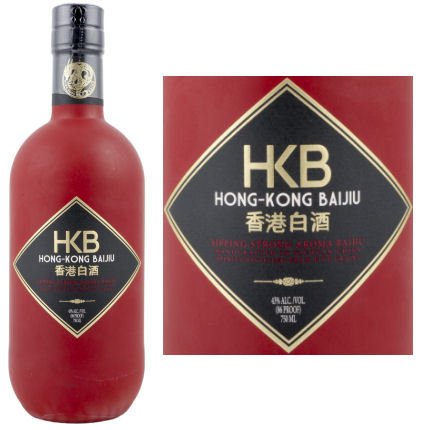http://www.nytimes.com/
Sam Anderson, the head bartender at Mission Chinese Food in New York, was sitting on a panel of mixologists last spring when the conversation turned to baijiu, the national drink of China.
By volume, baijiu (bye-ZHO), a clear liquor made primarily from sorghum and rice and aged in terra-cotta barrels, is the most widely consumed spirit in the world. But for many non-Chinese drinkers, it is also the most challenging, its aroma variously described as resembling stinky cheese, anise, pineapples, musk and gasoline.
With Mission Chinese about to reopen in a new spot, Mr. Anderson told his fellow panelists he was thinking about giving his menu a distinctive touch by concocting a baijiu cocktail. “Everyone sort of chortled,” he said. “They said, ‘Good luck with that.’”
Undeterred, Mr. Anderson raided a nearby liquor store and came back with 20 bottles, varying in intensity from near-vodka subtlety to Limburger pungency. He settled on a brand called Hong-Kong Baijiu, which is lower in proof and relatively tame in flavor. He paired it with white rum, pineapple juice, peach liqueur, lime juice and basil seeds to create Firewater Walk With Me, a spin on a Singapore Sling and a nod to the “Twin Peaks” theme that pervades the restaurant.
Baijiu, a clear Chinese liquor made primarily from sorghum and rice and aged in terra-cotta barrels, is appearing stateside at bars like Lumos.
And it works: The fruit and rum tame the baijiu, while it gives them a rich, earthy complexity. Mr. Anderson said the drink is one of his best sellers. And while it’s not uncommon for guests to send it back, many order a second round. “It’s definitely for people who are adventurous, people who are down for something new,” he said.
Baijiu isn’t about to take over the bar, but over the last year it has established a solid beachhead. Bartenders in New York, Washington and Los Angeles have taken it on with the same sense of challenge they once brought to similarly aggressive spirits like overproof whiskey and mezcal.
In New York, along with Mission Chinese, places serving baijiu cocktails include Red Farm, the Peninsula hotel, the Park Hyatt hotel and La Chine, a new restaurant in the Waldorf Astoria. In May, the country’s first baijiu-centered bar, Lumos, opened on West Houston Street, featuring more than a dozen baijiu cocktails and infusions.
Still, getting Westerners to drink baijiu can be difficult. There is very little information available to help non-Chinese drinkers understand what makes a good baijiu, let alone how to appreciate it. “There hasn’t been a good effort to introduce Westerners to the spirit,” said Derek Sandhaus, a spirits consultant who lived in China for almost a decade and wrote “Baijiu: The Essential Guide to Chinese Spirits,” one of the few books on the liquor.
But baijiu’s reputation precedes it. Even people who haven’t tried it typically have a friend who, on a business trip to China, was subjected to a night of baijiu shots, a slow march toward a vicious hangover, one thimble-size glass at a time.
“In China, when you drink baijiu, it’s like a knife fight,” said Shawn Chen, the beverage director at Red Farm, a restaurant in the West Village and on the Upper West Side. “You enjoy the reactions on each other’s faces.”
Nor does it help that in China, there are thousands of brands of baijiu, ranging in flavor and quality from dollar-a-liter rotgut to decades-old bottles that sell for tens of thousands of dollars.
“Baijiu is just a catchall term for all Chinese spirits, with as much variation as whiskey and rum,” said William Isler, an owner of Capital Spirits, a baijiu cocktail bar in Beijing.
For all that variety, there are commonalities to all baijiu that take some adjustment, above all an earthy, musky funk that lingers long after the liquid is gone. “I always tell people that it’s an acquired taste,” said Kris Baljak, a bartender at Bar at Clement in the Peninsula hotel, who started using baijiu in cocktails last spring.
Put baijiu in a cocktail, though, and things change. Because it has so many flavors, it works well in a variety of combinations.
